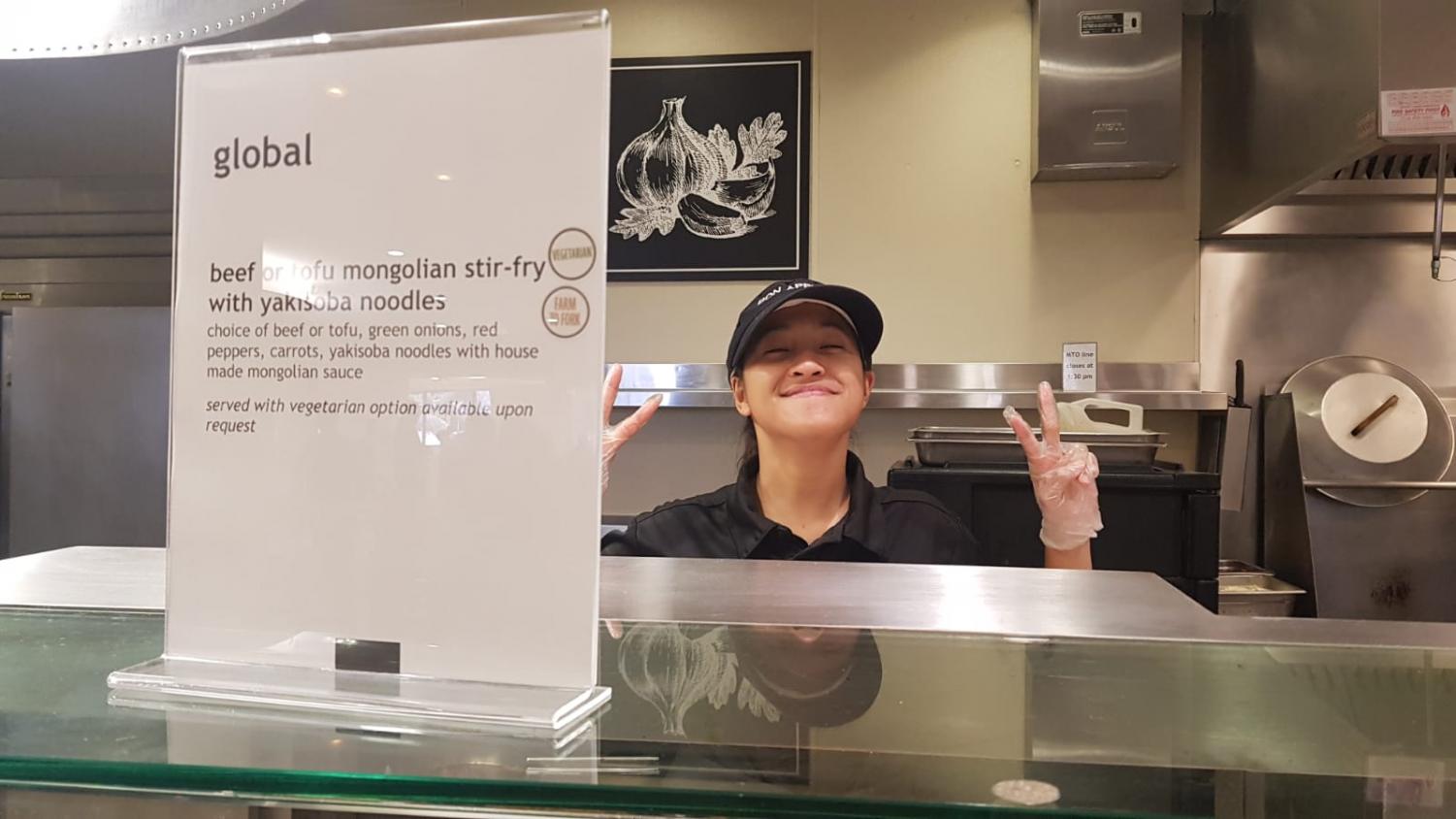Freshman business administration major Nayeli Barros felt relieved when she finally held her first paycheck, the long-awaited result of filling out stacks of paperwork and complex government forms which allowed her to work on Biola’s campus as an international student.
With numerous missionaries and countries represented by the international student body, diversity remains a pivotal aspect of Biola’s values. Some of these students look to earn money by finding jobs on campus. However, the process to work with a student visa and the cultural experience once employed comes with more complications than the average American student might experience.
THE PROCESS
Nearly 8.5 percent, a total of 23 students, working for Bon Appétit at one of the many on-campus eateries are international students, according to Steve Rall, general manager of Bon Appétit at Biola.
Because of their status as F-1 students, meaning they have a student visa from their home country instead of U.S. citizenship, certain rules limit their employment options at the beginning of their academic career. For example, they cannot be employed off-campus or work more than 20 hours per week, Rall says.
But the first big hurdles these students face are finding jobs and getting their social security card.
“It is a very ticklish situation for them,” said Biola immigration specialist Ranjini Gnaniah.
Gnaniah encourages international students to seek employment at the cafeteria or in facilities management, as those two places regularly employ foreign students and are often willing to hold positions until students can get social security.
“Both the departments are showing extra kindness to F-1 students,” Gnaniah said.
Once a student is hired, he or she must compile all the appropriate immigration and visa forms. After this, Human Resources passes the information on to Ranjini, who endorses the letter of employment and writes to the Social Security Administration, petitioning for a social security card to be issued to that student. After receiving their social security card, students report back to the office and are officially added onto the payroll.
Barros, who holds citizenship in both Belgium and Spain, faced this process last semester when she was seeking employment.
“To work you need a social security number, but to get a social security number you need a job. So not every job is willing to hire you without a security number,” Barros said.
Though this process involves extensive paperwork, once students have their social security card they are free to seek other employment options on campus. Barros, and many other international student workers, followed Ranjini’s advice and worked with facilities last semester to get their social security cards. Now Barros works for Campus Safety.
“Some people just quit after a few days [after getting the card] and get the job they wanted,” Barros said.
But the employers are understanding about this process, and “happily release them,” Ranjini said.
CULTURAL DIFFERENCES
Though the hiring process they face is not always easy, international students bring cultural diversity to their workplaces. But students still have to adjust to many cultural differences, from ideas about time and food to language.
“Within the student side [of employment], diversity is vast,” Rall said.
This diversity doesn’t just come through geographic homeland or skin tone but permeates the way that each individual views the workplace. International employees tend to have a “totally different respect for food,” Rall says, and some have expressed their worries about food waste.
For Japanese graduate student Yumi Ikeda, the language barrier has been the hardest—yet one of the most rewarding—parts about working in the cafeteria so far. She says that she has to be patient with herself and “have courage.”
Ikeda says her courage has paid off as she builds relationships through her work.
“In the Caf, almost all the workers—especially chefs—are Latino and speak only Spanish… So I started to learn Spanish… I noticed that even though we can’t communicate [in] language you can use body language,” Ikeda said.
Gnaniah also believes international students have a unique effect on their workplace.
“They bring their cultural knowledge and understanding that we learn a lot from…The cultural exchange is very helpful for us to grow as a global world,” Gnaniah said.







